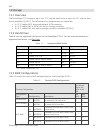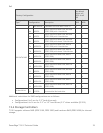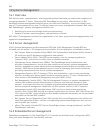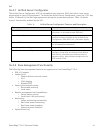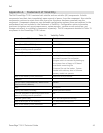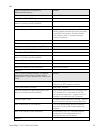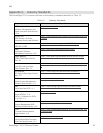
Dell
PowerEdge T110 II Technical Guide 43
Appendix A. Statement of Volatility
The Dell PowerEdge T110 II contains both volatile and non-volatile (NV) components. Volatile
components lose their data immediately upon removal of power from the component. Non-volatile
components continue to retain their data even after the power has been removed from the
component. Components chosen as user-definable configuration options (those not soldered to the
motherboard) are not included in the Statement of Volatility. Configuration option information
(pertinent to options such as microprocessors, system memory, remote access controllers, and
storage controllers) is available by component separately. The NV components detailed in Table 15
are present in the PowerEdge T110 II server.
Volatility Table Table 15.
Server BIOS Memory
Details
Size:
64 Mbit
Type [Flash PROM, EEPROM]:
Flash EEPROM
Can user programs or operating system write
data to it during normal operation?
No
Purpose? [boot code]
Boot Code and Configuration Information
How is data input to this memory?
Loading flash memory requires a vendor
provided firmware file and loader
program which is executed by booting up
the system from a floppy or OS based
executable containing the
firmware file and the loader. System
loaded with arbitrary data in firmware
memory would not operate.
How is this memory write protected?
Software write protected
Remarks
Server CMOS (Complementary Metal-Oxide
Semiconductor) Memory
Details
Size:
512 Bytes
Type [Flash PROM, EEPROM]:
Battery-backed NVRAM
Can user programs or operating system write
data to it during normal operation?
No
Purpose? [boot code]
RTC and Configuration settings
How is data input to this memory?
F2 Setup Menu during POST
How is this memory write protected?
N/A



